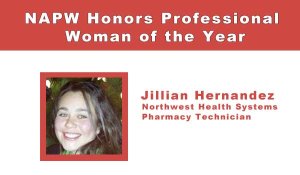The pharmaceutical industry is one of the most heavily regulated in healthcare. From the DEA to state pharmacy boards, there are many players, and it can be difficult to keep them all straight. And like most industries, they rely heavily on acronyms. We thought it would be helpful, as you read through the information on our site, to have a place you can go to figure out who all those letters belong to. We’ll give you a brief introduction, as well as contact information, to some of the major players in the industry.
DEA – Drug Enforcement Agency
www.justice.gov/dea
(202) 307-1000
The Drug Enforcement Agency (DEA) is the lead organization for the enforcement of federal drug laws, housed under the U.S. Department of Justice. Founded in 1973 by President Nixon, the primary role of the DEA was to take on the growing illegal drug trade. Today the DEA has almost 5,000 Special Agents, and its scope has expanded to “enforce the controlled substances laws and regulations of the United States and bring to the criminal and civil justice system of the United States…and to recommend and support non-enforcement programs aimed at reducing the availability of illicit controlled substances on the domestic and international markets”. DEA.gov
FDA – Federal Drug Administration
www.fda.gov
888-INFO-FDA
The U.S. Food and Drug Administration is the oldest consumer protection agency in the U.S. government. The FDA’s stated mission is “responsible for protecting the public health by assuring the safety, efficacy and security of human and veterinary drugs, biological products, medical devices, our nation’s food supply, cosmetics, and products that emit radiation”. It is the primary regulator of pharmaceuticals, including prescription and over the counter drugs, dietary supplements, medical devices, cosmetics, veterinary products, and tobacco products.
State Boards of Pharmacy
Each state has a Board of Pharmacy, which is responsible for the monitoring and regulation of their state’s pharmacies, including all pharmacists, pharmacy technicians, and pharmacy aides. The purpose of the Boards of Pharmacy is to protect the public health by requiring certain educational standards be met, as well as licensing, staffing, and accreditation requirements to enforce strict standards of care.
NABP – National Association of Boards of Pharmacy
www.nabp.net
(847) 391-4406
Email: custserv@nabp.net
Founded in 1904, the NABP was set up as an impartial organization to support the state’s Boards of Pharmacies in protecting the public health. It represents pharmacists and pharmacies in all 50 states, and pushes for national standards in accreditation, education, and licensing of pharmacists and pharmacy technicians.
NASPA – National Alliance of State Pharmacy Associations
www.naspa.us
(804) 285-4431
The NASPA serves as an avenue for the sharing of ideas, and the promotion of learning and policy exchange among state pharmacy associations. Their vision is to “improve their work and service through the sharing of ideas and the pursuit of activities that benefit and strengthen state pharmacy associations and the members they serve”.
AACP – American Association of Colleges of Pharmacy
www.aacp.org
The AACP is the national organization representing all colleges of pharmacy in the U.S. All schools within the AACP are accredited by the Accreditation Council for Pharmacy Education (ACPE).
NPTA – National Pharmacy Technician Association
www.pharmacytechnician.org
(888) 247-8700
The NPTA is the largest professional organization for pharmacy technicians. Its purpose is to promote the profession and offer support to CPhT’s and PhT students. They are the leader in continuing education programs, offering more than 30 hours of CE in a variety of formats.
AAPT – American Association of Pharmacy Technicians
www.pharmacytechnician.com
(877) 368-4771
Email: aapt@pharmacytechnician.com
The AAPT is a not-for-profit association representing all pharmacy technicians nation-wide. They offer continuing education credits to pharmacy techs, and advocate for strict education and training standards.
ASHP – American Society of Health System Pharmacists
www.ashp.org
(866) 279-0681
Email: custserv@ashp.org
The ASHP is a professional organization for pharmacists, pharmacy technicians, physicians, and other healthcare professionals. They also offer continuing education courses and credit in a variety of formats.
PTCB – Pharmacy Technician Certification Board
www.ptcb.org
(800) 363-8012
Email: contact@ptcb.org
The PTCB was formed in 1995 by several different pharmaceutical boards, and their primary mission was to establish a national standard for Pharmacy Technicians. Their exam is the most widely accepted form of certification for CPhT’s, and it is accredited by the National Commission for Certifying Agencies (NCCA). Many state Boards of Pharmacy and employers require certification by the PTCB.
NHA – National Healthcareer Association
www.nhanow.com
(800) 499-9092
Email: info@nhanow.com
The National Healthcareer Association is the country’s largest health career certification provider, and administers certification exams for 10 Allied Health Professions, as well as continuing education and recertification. Like the PTCB, they are accredited by The National Commission for Certifying Agencies (NCCA), and are recognized in all 50 states. Their CPhT program was started by the Institute for the Certification of Pharmacy Technicians (ICPT), which is now part of the NHA.




